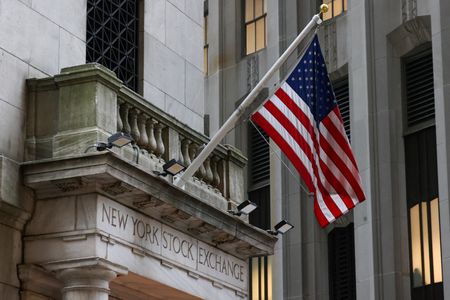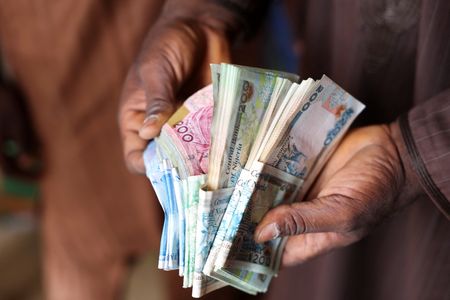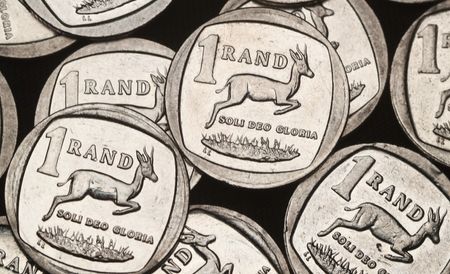By Marc Jones
LONDON (Reuters) – Bond vigilantes continued to stalk global debt markets on Thursday, also keeping the dollar and stocks subdued, as the U.S. House of Representatives passed President Donald Trump’s “big beautiful” tax bill by a single vote.
Wall Street looked set to open fractionally higher [.N]having tumbled on Wednesday after the previous day’s limp U.S. and Japanese long-term debt sales had highlighted the unease about rising government debt burdens.
This reinforced a “Sell America” narrative at the front of investors minds after Moody’s last week became the last of the major credit rating agencies to strip the U.S. of its coveted triple-A status.
Long-term 20- and 30-year U.S. Treasury yields were shuffling higher again as were those in Europe, where benchmark German 20-year yields reached their highest in two months as global yield curves steepened.
Britain’s government borrowed more than expected in April, figures showed, while euro zone business activity unexpectedly slipped back into contraction territory.
Stock markets in London, Paris, Milan and Frankfurt were all down between 0.75% and 1% [EU.]. The dollar was at its weakest against the Japanese yen in two weeks, while bitcoin set an all-time high, partly as investors sought out alternatives to U.S. assets. [EU.] [GVD/EUR]
The non-partisan Committee for a Responsible Federal Budget estimates that the U.S. bill, which will extend Trump’s signature 2017 tax cuts as well as boost military and other spending, will increase the U.S.’s $36 trillion debt pile by $3.8 trillion over the next decade.
“It should be good news that fiscal stimulus is coming given that markets have been worried about recession risk, but there is also the concern about fiscal sustainability,” State Street Global Markets’ Michael Metcalfe said.
“I think the dollar is the bellwether to watch here. If it isn’t reacting to higher yields, it shows that confidence in U.S. policymaking has perhaps been dented.”
The yields on 30-year Treasury bonds – a proxy for super long-term U.S. government borrowing costs – reached 5.13%, their highest since October 2023 and the 20-year yield hit 5.14%, its highest since November that year.
The bond market in Japan has also been in focus given that it has the highest debt-to-GDP ratio of any major economy. The 30-year JGB yield hovered at 3.169%, not far from the record high of 3.185% hit in the previous session. [JP/]
Stocks in Asia also fell after Wall Street’s Wednesday tumble. MSCI’s broadest index of Asia-Pacific shares outside Japan ended 0.6% lower, while Japan’s Nikkei fell 0.8% on the stronger yen. [FRX/]
“The view is that, with this bill, Trump is playing with fire with the deficit,” said Francesco Pesole, FX strategist at ING.
“It’s causing a coordinated sell-off in equities and Treasuries, and the ‘Sell America’ theme is obviously quite negative for the dollar,” Pesole added.
TRADE DEAL PROGRESS
Oil prices were down more than 1.5% following a report that countries in the OPEC+ group are discussing another sharp production increase for July. [O/R]
Brent futures fell $1, or 1.5%, to $63.98 a barrel in Europe, while U.S. West Texas Intermediate crude dropped 97 cents, or 1.58%, to $60.60.
Modest progress to date on trade deals has also made investors nervous.
Attention was also on a Group of Seven meeting in Canada, where finance ministers had put a positive spin on discussions to try to reach an agreement on a joint communique largely covering non-tariff issues.
Investors have been looking for any hints that currency markets could be part of trade negotiations. But Thai and Japanese officials said currency markets were not part of their discussions.
Bitcoin had no such worries. It climbed as high as $111,862.98, a new record peak and a 3.3% increase from Wednesday’s close.
It comes amid hopes that soon-to-be-finalised U.S. stablecoin regulation will continue to bring cryptoassets into the mainstream.
“My official forecasts for Bitcoin are 120k end Q2, 200k end 2025 and 500k end 2028,” Standard Chartered’s Geoff Kendrick said.
(Reporting by Marc Jones, graphic by Naomi Rovnick; editing by Jane Merriman)








